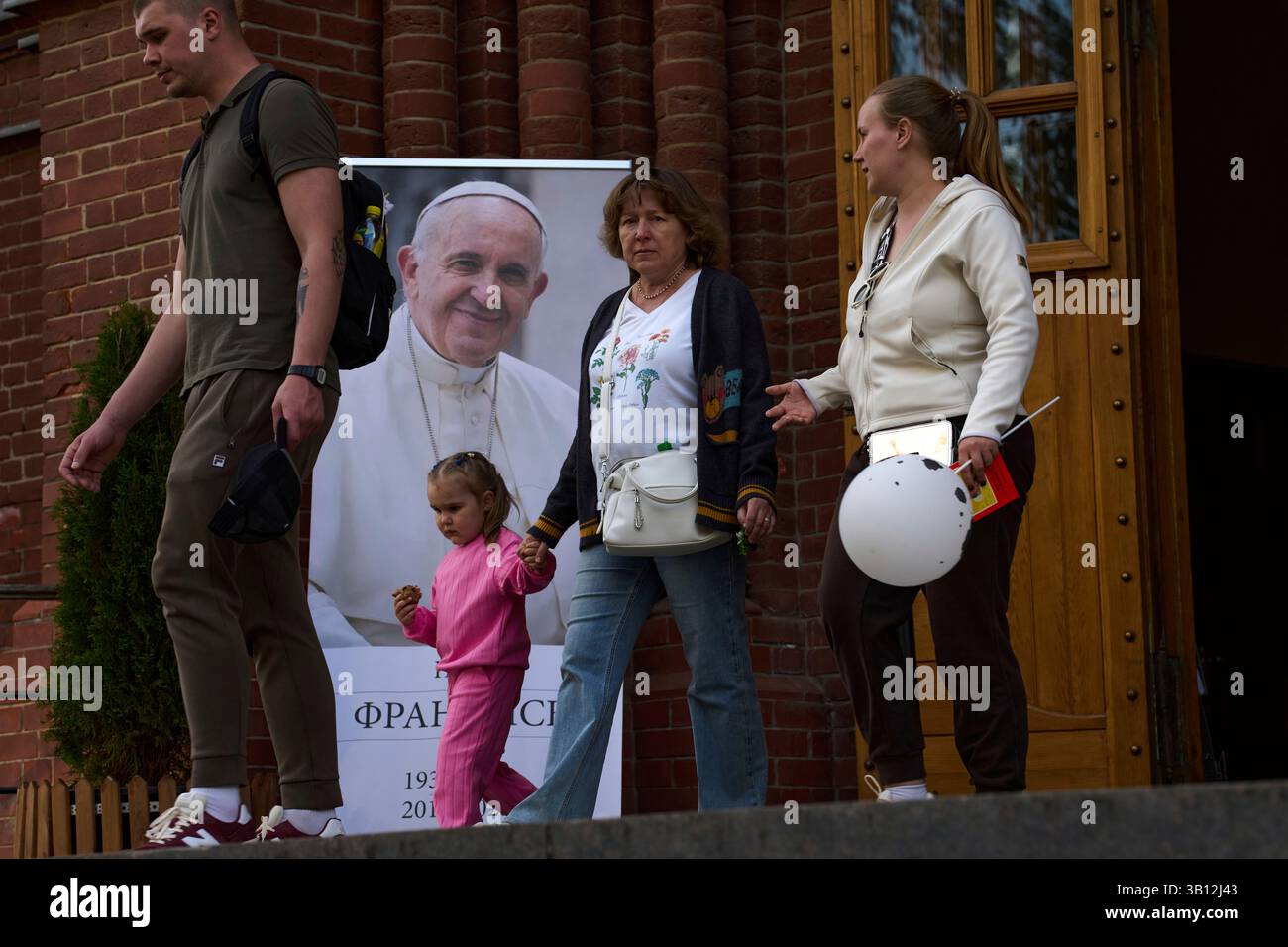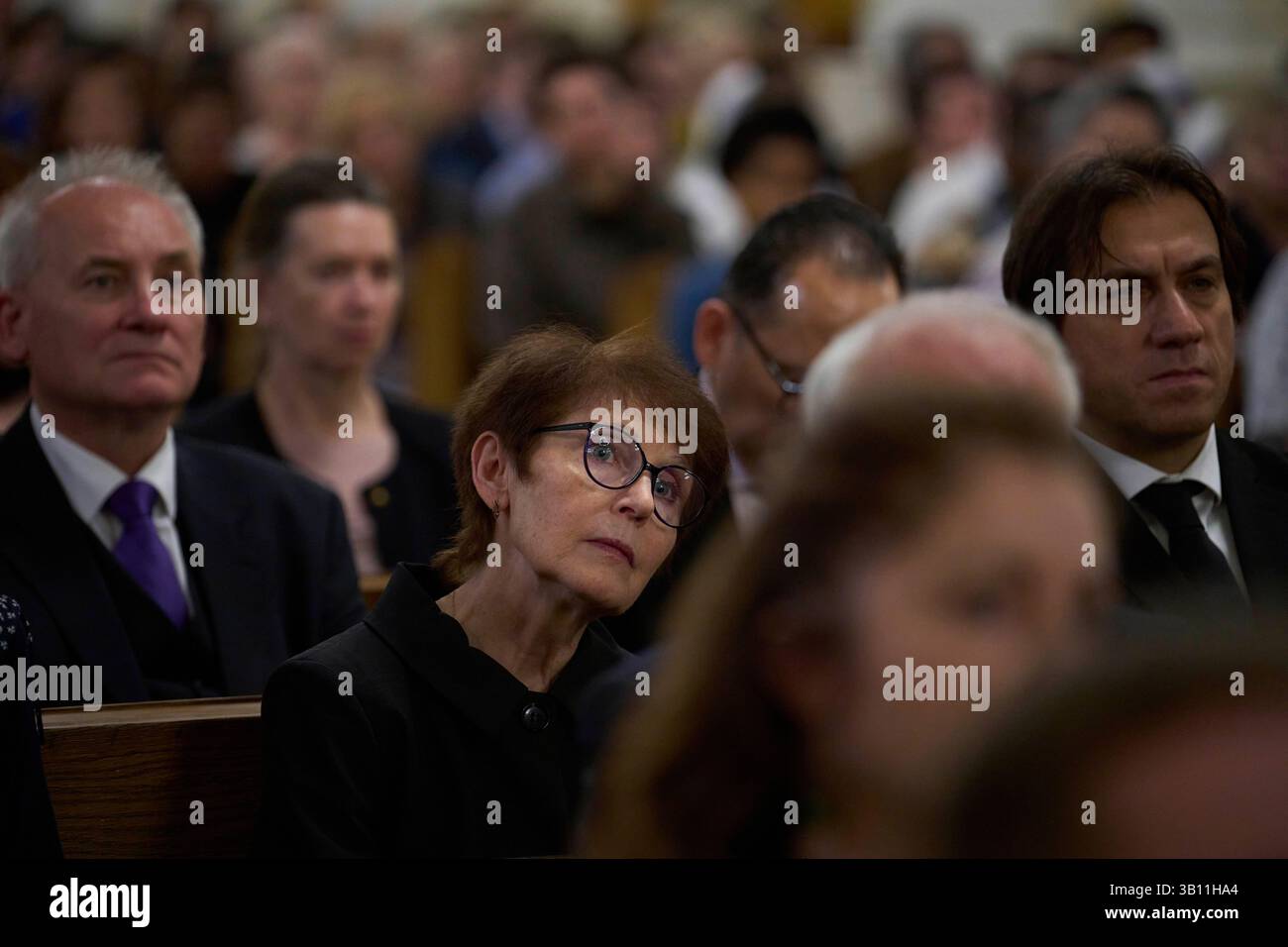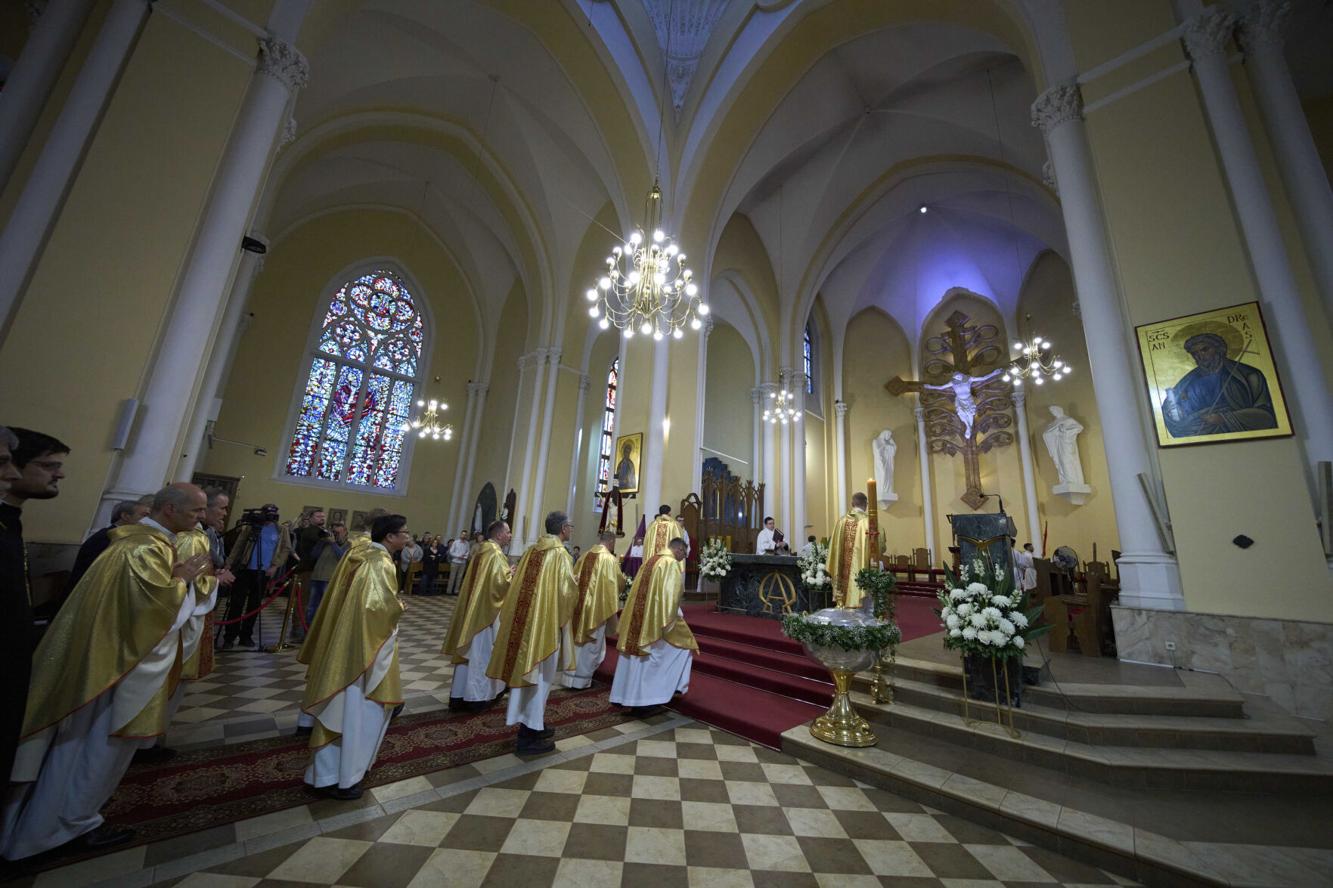Pope Francis & Russia: Peace Efforts Amid Ukraine War - Latest Updates
Is a bridge to peace truly being built, or is it just a mirage in the fog of war? Pope Francis' persistent efforts to mediate the conflict between Russia and Ukraine, involving clandestine meetings and complex diplomatic maneuvers, paint a picture of a pontiff deeply committed to ending the bloodshed, even as the path remains fraught with peril.
The Vatican's involvement in the Ukrainian crisis has been a slow, deliberate dance, often shrouded in secrecy. The head of the Catholic Church, Pope Francis, has repeatedly expressed his desire to facilitate peace, offering himself as a potential mediator between the warring factions. His attempts to navigate the delicate geopolitical landscape have been met with both hope and skepticism, raising questions about the Vatican's influence and the true prospects for a resolution.
| Attribute | Details |
|---|---|
| Full Name | Jorge Mario Bergoglio |
| Born | December 17, 1936 (age 87) in Buenos Aires, Argentina |
| Religious Order | Society of Jesus (Jesuits) |
| Ordained Priest | December 13, 1969 |
| Ordained Bishop | June 28, 1992 |
| Appointed Archbishop of Buenos Aires | February 28, 1998 |
| Created Cardinal | February 21, 2001 |
| Elected Pope | March 13, 2013 |
| Motto | Miserando atque eligendo (Having mercy, he chose him) |
| Key Actions & Interests | Advocates for the poor, environmental protection, interreligious dialogue, and peace. Actively involved in addressing social justice issues globally. |
| Reference | Official Vatican Website |
The most visible manifestation of this commitment is the appointment of special envoys. In June 2023, Pope Francis designated Cardinal Matteo Maria Zuppi, the Archbishop of Bologna and President of the Italian Bishops' Conference, as his special envoy for peace in Ukraine. This move signaled the Vatican's determination to find a path towards dialogue, even as the war raged on. Cardinal Zuppi's mission has primarily focused on the repatriation of Ukrainian prisoners of war and the return of children who were forcibly taken to Russia during the conflict. These efforts, while seemingly small in the vast scope of the war, represent concrete steps towards easing the suffering of those affected by the fighting.
Cardinal Zuppi's diplomatic efforts have taken him directly into the heart of the conflict. His second visit to Moscow, Russia's capital, occurred on Monday, as reported by news sources. The hope was to find a solution to the "tragic current situation" of the war in Ukraine. This visit was a follow-up to a preliminary trip to Kyiv, demonstrating the Vatican's willingness to engage with both sides of the conflict. Vatican City was abuzz with activity on October 14, 2024, as the world watched and waited to see the outcome of Cardinal Zuppi's mission. On the same day, Vatican spokesman Matteo Bruni confirmed that the Italian Cardinal's mission in Moscow had begun, confirming the efforts being undertaken.
The diplomatic intricacies of the situation are complex. The Russian ambassador to the Holy See, Ivan Soltanovsky, extended an invitation for Pope Francis to meet with Vladimir Putin in Moscow in June. According to sources, the pope accepted the invitation. This prospect, however, remains uncertain. The Vatican has not officially confirmed any such meeting. In fact, the director of the Holy See Press Office stated that Pope Francis had not accepted an invitation to travel to Moscow in June. The situation highlights the precarious nature of the diplomatic dance and the challenges involved in brokering peace.
Furthermore, it has been noted that Pope Francis has been willing to travel to Ukraine, but only if he could also travel to Moscow. In an interview, he stated: "I will go to both places or neither." This approach underscored his belief that a true resolution required dialogue with both sides, recognizing the need for impartiality and a comprehensive approach to resolving the conflict. The Pope's willingness to make these difficult and potentially dangerous journeys demonstrates the depth of his commitment to peace.
The Vaticans approach is not without its critics. Some question the Pope's actions and statements. Pope Francis has been accused of not defending religious liberty for Catholics in places such as Nicaragua and Venezuela, or for Muslims in China, yet he has spoken in defense of the Russian Orthodox in Ukraine. Some observers suggest that the Pope is too accommodating of Moscow's narrative, especially given the strong support the Russian Orthodox Church has given to the war. Pope Francis has publicly chastised the Patriarch for his public support of the war. The Pope has walked a tightrope, trying to maintain open lines of communication while avoiding taking sides in the conflict.
The complexities of the conflict are further compounded by the religious dimensions. In a historic meeting on February 12, 2016, Pope Francis and Patriarch Kirill, the head of the Russian Orthodox Church, met in Havana. The meeting, the first of its kind, represented a significant step towards ecumenical dialogue. However, the war in Ukraine has strained the relationship. The Popes condemnation of the war, and his calls for peace, have put him at odds with Patriarch Kirill, who has been a vocal supporter of the conflict. As the shepherds of their people, Pope Francis thanked the Patriarch for the meeting, motivated by the desire to point out a path to peace, to pray for the gift of peace and for a ceasefire. The Pope and the Patriarch agreed that the church must not use the language of politics, but the language of Jesus.
This is not the first time that the pontiff has indicated his readiness to travel to both Moscow and Kyiv. The Russian embassy in the Vatican is fully aware of these intentions, although, according to the Russian ambassador, such visits are not currently being planned. This statement further emphasizes the delicate diplomacy surrounding the conflict, where every move and statement has the potential to shift the balance.
The Vatican's peace efforts are happening against a backdrop of increasing global instability and geopolitical tensions. The Pope's attempts to mediate are not just about Ukraine. The success or failure of his efforts may have implications for other conflicts and for the role of the Vatican in international affairs. In a 1965 interview, it was revealed that the pope would go to Moscow, and that when he returned hostility or war would break out in Europe. Pope Franciss trip was the first. Soon afterward, hostilities increased, and the warning occurred. Despite the challenges, Pope Francis continues to pursue peace, driven by the belief that dialogue and diplomacy offer the best hope for ending the suffering. In the late afternoon of Thursday, July 11, the Pope met with the president of the Department for Foreign Ecclesiastical Relations of the Patriarchate of Moscow.
In an interview with an Italian newspaper, Pope Francis stated that he has offered to travel to Moscow to meet with President Vladimir Putin to try to end the war, and suggested that the invasion might have been provoked by NATO's eastward expansion. While some would criticize this position as a gesture of appeasement towards Moscow, it is characteristic of the Holy See's historical diplomatic strategies. In the current climate, any effort to achieve a lasting ceasefire and initiate peace talks is essential. The suggestion that NATO played a role in the conflict, even if controversial, is not as critical to the Vatican as the immediate goal of ending the war.
In May of 2022, the Pope publicly chastised the Patriarch for his public support of the war. He has consistently called for peace and has expressed his concern for the suffering of the Ukrainian people. Pope Francis has said, "What good would it do for the Pope to go to Kyiv if the war continued the next day?". Cardinal Zuppi's work, in particular, is focused on the repatriation of Ukrainian children. These concrete efforts are vital components of the Vatican's overall strategy.
The Popes approach has been to balance criticism of the war with a willingness to engage with both sides in the conflict. Pope Francis grants an interview to Luciano Fontana, editor of the Italian daily newspaper Corriere della Sera, focused on the war in Ukraine. He said, "I feel that before going to Kyiv I must go to Moscow." On Sunday, at his weekly Angelus appointment, Pope Francis decried a new Ukrainian law concerning the Russian Orthodox Church and its presence in Ukraine. Popes dont usually criticize national.
Pope Francis's peace envoy began his second visit to Moscow, Russia's capital, on Monday. The pope named Cardinal Matteo Maria Zuppi, archbishop of Bologna and president of the Italian bishops' conference, as his special envoy in June 2023. In his role, Cardinal Zuppi is tasked with navigating the political and religious complexities of the region. The Vatican's persistent efforts to mediate the conflict illustrate the deep commitment to peace and his recognition of the war's devastating impact. It is the hope of many that the Vatican's unique role might provide a glimmer of hope, as the world watches and prays for an end to the conflict in Ukraine.


